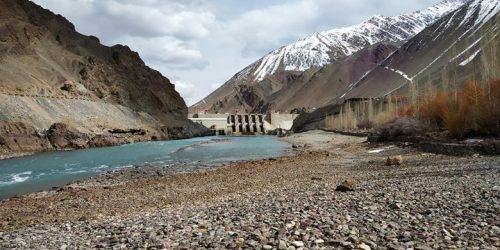Hydrogen holds hope for many nations as they seek to implement the Paris Agreement and its decarbonisation targets. Pakistan has recognised the potential also. There are several properties that make hydrogen an excellent energy vector and its deployment is complimentary to an energy mix that is high in renewables.
Generation of electrical power from renewable sources such as wind, solar and hydro schemes is subject to weather patterns, daily sunlight profiles and seasonal rainfall. However, the demand pattern for electricity consumption follows different daily and annual cycles. Hydrogen can be combined synergistically with these renewable power sources to bridge the gaps between supply and demand.
Hydrogen is a clean burning fuel with zero carbon dioxide emissions. When it is produced from renewable power it can contribute both to improvements in ambient air quality and a reduction in greenhouse gas (GHG) emissions. When used on power generation plants to substitute coal, oil or natural gas there is the opportunity to decarbonise electricity generation and re-life existing assets.
For heating, cooking and CNG mobility applications, hydrogen can be ad-mixed into the existing natural gas distribution pipelines to reduce pollutant gas emissions from these applications. With a transition to fuel cell vehicles, hydrogen for transportation applications on urban trains, heavy trucks and buses can reduce pollution in Pakistan’s major cities such as Karachi and Lahore, each of which is home to more than 10 million people.
Hydroelectric power is abundantly available in Pakistan.
With abundant potential for wind, solar and hydroelectric power generation, Pakistan can also look forward to ‘energy-autonomy’ through the conversion of renewables to green hydrogen on electrolysers. Perhaps Pakistan can transition from being a net energy importer to becoming an exporter of green hydrogen or derivatives such as ammonia or methanol.
With all these potential benefits, hydrogen is getting much attention from the power and energy departments within the Government of Pakistan’s administration.
And as gasworld Asia-Pacific understands, work is well underway in the country as a collaboration of Asian Development Bank (ADB), Pakistan’s National Energy Efficiency and Conservation Authority (NEECA), consultant Stephen B. Harrison of sbh4 GmbH and other local organisations work together on a pre-feasibility study and how energy priorities can be turned into projects.
Gasworld Asia-Pacific exclusive
Read the full interview, including detailed insights into the pre-feasibility study, Pakistan’s national energy priorities and infrastructure aims, its unique geography and how its vast potential can be turned into tangible projects, in a gasworld Asia-Pacific exclusive.





